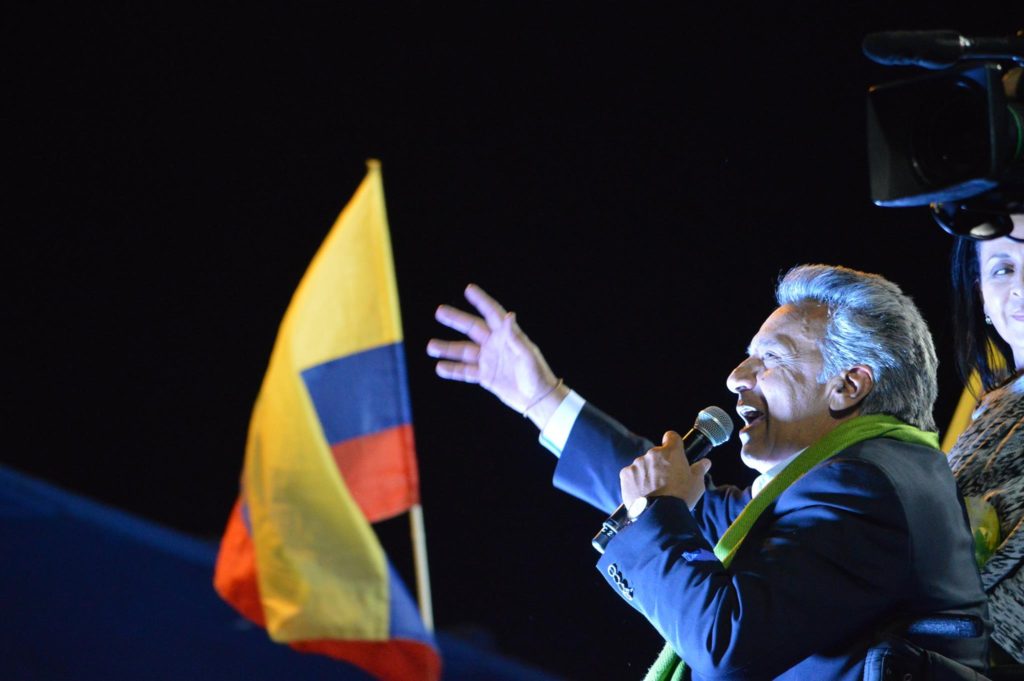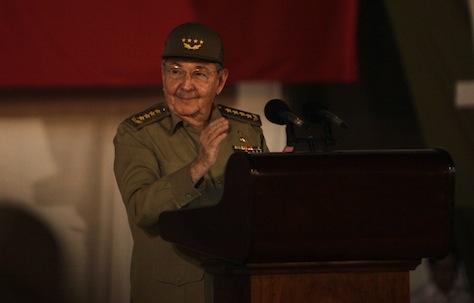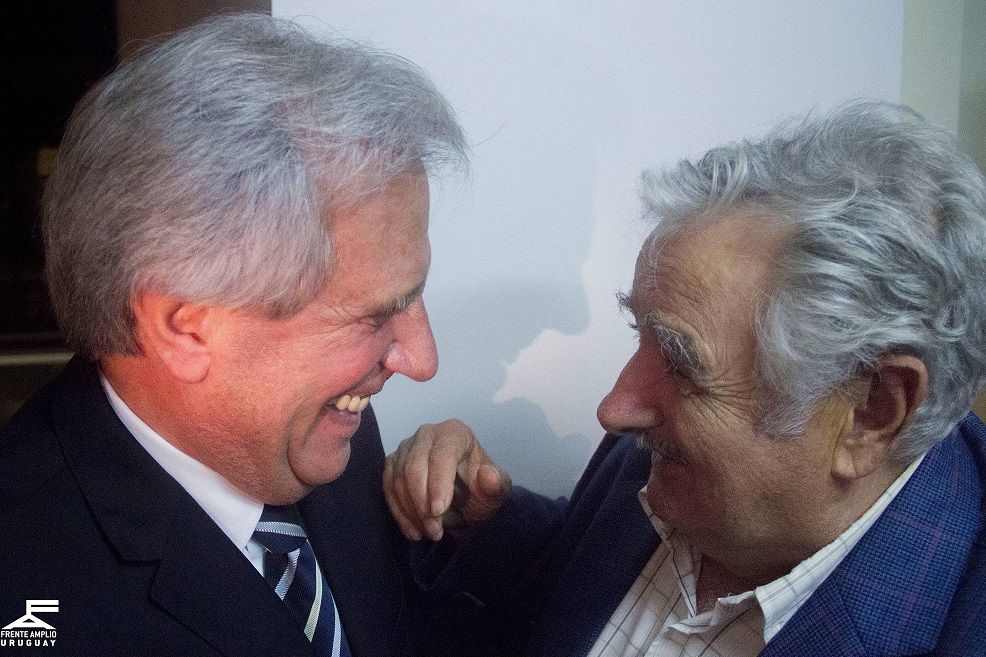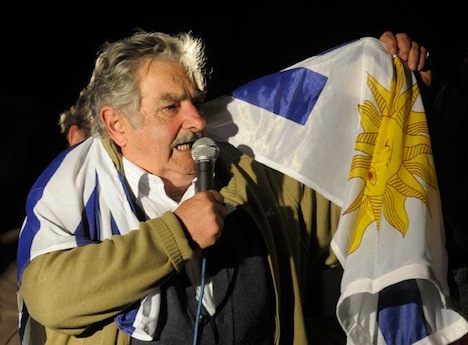
It shouldn’t have been a surprise that Lenín Moreno won election as Ecuador’s president on Sunday. ![]()
He came just a hair within winning the presidency outright in the first round of the election on February 19 and, even then, led his challenger, conservative businessman Guillermo Lasso, by double digits.
So if anything, his very narrow victory in the April 2 runoff was an impressive showing for Lasso and his supporters, even if it was not quite enough to prevent another five years of left-wing correísmo that will attempt to build on (or improve upon) the last decade of so-called ’21st century socialism’ under outgoing president Rafael Correa.
Moreno has billed himself as something of a more moderate version of Correa, under whom he served as vice president from 2007 to 2013. In some measures, Moreno will have to be more moderate — rising public debt, lower oil prices and a weakened economy will mean Moreno will have less freedom to pursue the same level of expansionary fiscal policy that unfolded under Correa’s administration. Moreno will also be working with a much reduced majority within the ruling Alianza PAIS in the Ecuadorian national assembly, which could also narrow Moreno’s governing path.
After elections of relatively center-right presidents in Peru and Argentina in 2015, and with Brazil’s social democratic president Dilma Rousseff impeached last year, Ecuador was an important test for the Latin American left, which has suffered increasingly across the region.
* * * * *
RELATED: As Lasso rises, Ecuador could be next
leftist domino to fall in LatAm
* * * * *
In some ways, however, though Correa started off on the populist left alongside fellow nationalists like Venezuela’s Hugo Chávez and Bolivia’s Evo Morales, his government charted a more complex course. Under Correa — the longest-serving president of Ecuador in its history — the country maintained the use of the US dollar as currency, an important anchor against inflation. Despite standing up to Ecuador’s bondholders early in his presidency, Correa gradually wooed foreign investment from both China and the United States, and used the proceeds of Ecuador’s oil wealth to double social spending. In that regard, Correa’s approach to government looks no different than many of the center-left and even center-right leaders of Latin America, from Mexico to Brazil, over the last two decades. Ecuador after Correa fits more into the international mainstream than Argentina after the Kirchners or even, perhaps, Brazil after the crashing defeat of lulismo after 15 years (though lulismo may have an opportunity for a comeback in 2018).
Though he’s tried to cast himself as a slightly more conciliatory figure than Correa, Moreno campaigned on a pledge to increase social spending. Moreno may (or may not) truly be more moderate than Correa. Circumstances almost certainly mean that he’ll be forced to moderate and reform some of the excesses of his predecessor. Moreno will also deal with a staggering corruption problem — the Brazilian construction company Odebrecht paid over $35 million in bribes to officials in Correa’s government for special treatment in awarding Ecuadorian contracts. Jorge Glas, who has served as Correa’s vice president since 2013 and will continue as Moreno’s vice president, is himself one of the most compromised figures as corruption allegations compounded during the campaign.
Nevertheless, the more mild-mannered Moreno is an optimistic figure who spent much of the last three years working as a special envoy for the United Nations promoting access for the disabled (Moreno himself is confined to a wheelchair after muggers shot him in 1998). Perhaps the best model for Moreno is the former Uruguayan president José Mujica, whose personal story and everyman charisma allowed him to chart a decidedly progressive course in a way that punched well above its weight on the international stage.






